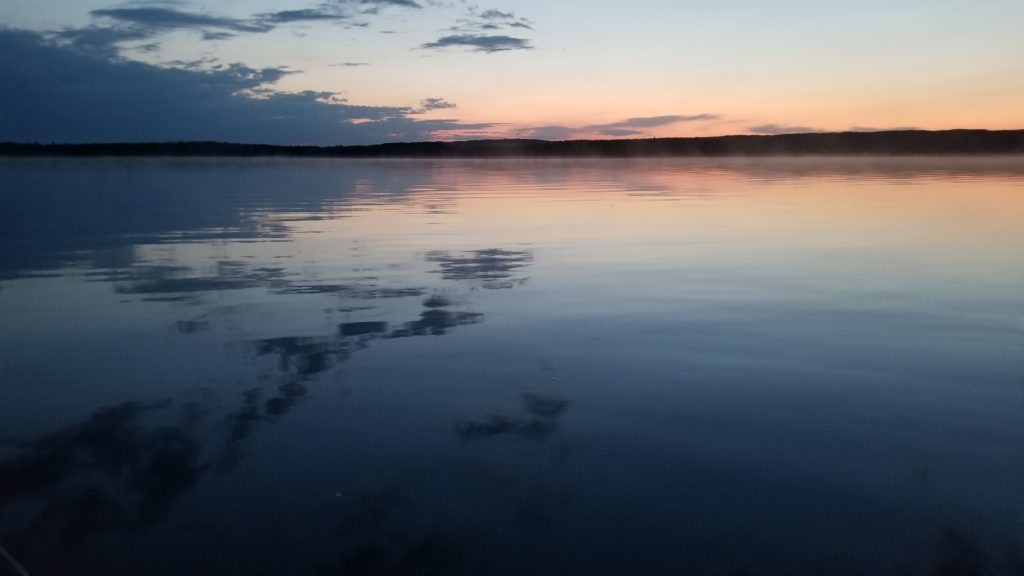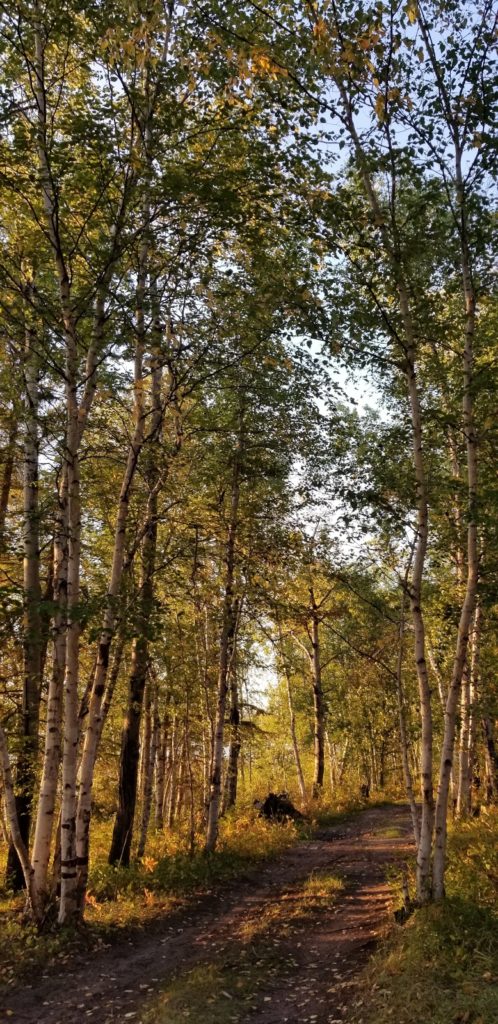Exodus
32:7-14
Psalm 51:1-10
1 Timothy 1:12-17
Luke 15:1-10
We want it Simple, But life is messy
We really do like it simple: we want everything black and white, either Good or Evil. There are good people and there are evil people. We are the good people. They are the evil people. God chooses us, not them. But life is much messier than that. We are all simultaneously God-made saints and self-made sinners.
We are all sinners
Bill of AA
In the early years of Alcoholics Anonymous, at many meetings a comfortably dressed and well-groomed man would enter, not as a person of importance expecting special respect and appreciation. He never even sat in the front with the regulars. Instead he would choose the back, the place where someone new was likely to be sitting – someone with the shakes –someone with an odour that he recognized. He knew that odour. He could find it in the back of his own closet at home. Reminded how he was once right there dying with that smell, he loved that man.
When the time came he would stand and introduce himself like everyone else at the meeting. “Hello. My name is Bill, and I’m an alcoholic.”
He did not add that he was one of the co-founders of AA.
The back of our Closets
We all have ugly skeletons in the back of our closets that remind us how broken we really are. It is not easy to acknowledge what’s in the back of our closets, so we often say in confession: If we say we have no sin we deceive ourselves and the truth is not in us.
The important truth is that we are self-made sinners.
Do we have to make it to God,
Or does God come to rescue us?
How is it that we move from being sinners to being righteous before God? Of course we would like it to be simple, we just go to God, or God just comes to us. But real life is not that simple.

Huts on a deserted island
During a raging storm lightning struck a cruise ship disabling all communications and controls. Drifting far off course, hours later the ship struck a reef and sank off a deserted island. Having no end of conflict during the voyage due to outspoken beliefs the survivors sorted themselves on to the island according to their beliefs about God so as to avoid the ongoing conflicts.
Freewill
The largest group built huts helter-skelter around the lovely sandy beaches. Most organized themselves in small groups, working terribly hard, some to build a raft to float back to civilization, some to build a communication system to call for help, some to make themselves as comfortable as possible. A small number of them simply did nothing but gather food and coconuts to make alcohol.
This disparate group from all religions, even agnostics, believed that they had to save themselves. God, if there was one the agnostics added, was not going to intervene. It was all up to them. They said they had great moral guides, but they did whatever they could get away with, so trouble constantly arose between them. They fought to prove that they had indeed done enough good to earn God’s favour. This large group lived like God did not exist at all, even though they said they believed in God, except the agnostics.
Alice and Double Predestination
Alice’s group built huts far from everyone else, facing a square yard for the kids and adults to walk in and meet in. The believed God was in charge of everything, including everything bad that happened. They wanted to have as little to do with the others as possible. They knew that God had saved them and not the others. They lived to prove God had chosen to save them. This group could not admit that they had ever done anything wrong, so they stuffed their closets full of old skeletons. In the dark they exercised those skeletons all too well, but when the sun shone they denied everything.
Inside Alice’s group a sub-group set up in their own corner. They believed as well that God had saved only them, that God was in charge of everything, including all evil, like their shipwreck. Instead of trying to prove God saved them they just gave up and did as little as possible. God was going to do what God was going to do and there was no way to change that. So why care about anything? They simply let life progress as it would. It was all up to God.
Martin Luther’s messy Single Predestination
A third large group believed that God alone could save them, but they still had freewill to choose to walk away from God. Few of them could precisely describe their beliefs. They built huts all around the island. This group constantly held joyous meals, celebrating that, when this member or that member had walked away from God, by Grace God had brought them back.
They were usually the kindest people, but they admitted, sometimes also as cruel as could be! They said God saved them many times each day, just because God chose to. They believed their life purpose was to extend God’s Grace to everyone. This group had people from all faiths, even Lutherans. They understood Evil came, not from God, but from humans choosing to turn away from God, as God created them to be able to.
They neither hid their sins nor tried to hide from sin. They just didn’t worry about or focus on their sins, yet they weren’t reckless with sin. They trusted God’s constant forgiveness, and worked to be God’s people of Grace.
Simultaneously Saints and Sinners and Golden Calves Galore
They accepted Luther’s paradox that all God’s people are simultaneously saints and sinners. They understood all too well that they had been right there next to Bill at the back of the room and, many times, at the bottom of their own Mt Sinai, building their own golden calf, so like Moses’ people had.
Golden Calf – God Changes God’s Mind
Moses’ people feared God had abandoned them. God became visible to Moses just 3000 yards away, but they did not dare venture up that steep trail. So they waited for Moses to come back, but he didn’t. They impatiently needed a god who would be available to them. So they collected their gold, melted it into an idol and worshipped their little godlet. Their false worship settled their anxiety, but it ate out their hearts and souls.
God sees all this and asks Moses to leave him alone so that God’s wrath can burn hot and consume this perverse people. God goes so far as to tell Moses these are Moses’ people, whom Moses brought out of Egypt. That may be all true, of a sorts, so Moses reminds God that God has delivered the people, they are God’s people.
[May we never be in need of such boldness before God. But then if it need be, may we speak only the truth! And trust that God’s Grace will prevail also for us.]
Then God remembers God’s promises, and God changes God’s mind, from deserved annihilation to gracious forgiveness. God doesn’t smite the golden calf people. Instead they will stay in the wilderness for 40 years. The next generation will enter the promised land.

What are our ‘golden calves’?
What are our ‘golden calves’? How many times have we set up our own little godlets, not that far from the Altar of the Eucharist where God is visible and handed to us in the bread and wine?
It can be something as simple as the colour of the new carpet, the stewardship campaign we run, the prayers and music we can use in worship, or even who is welcome in ‘our’ church. In our daily lives our little godlets take on a variety that could more than fill all the stores and warehouses in the world.
God’s response to our sin
How does God respond when God sees all this? God remembers God’s promises, and chooses not to consume us with fury and wrath, which we deserve! Instead God changes God’s mind and does not smite us sinners as we worship our godlets of so great a variety.
Jesus eats with us, rejoices at our return
Instead Jesus eats with tax collectors and sinners, like us. And Jesus explains it like this: The shepherd loses one sheep of 100, leaves the 99 to find the lost one, and rejoices at it’s finding and celebrates with friends. The woman loses one coin, looks thoroughly for it, finds it, rejoices and calls friends to celebrate with her. So also as God all too often loses one of us to sin. God’s glory is not in smiting us out of existence, but in rescuing us. God delights and rejoices in bringing us home.
God comes all the way to us and through the sacrificial blood of Jesus reclaims us as holy saints. God makes us sinners into saints, and though we remain sinners we are simultaneously God-made saints.
What is it to live in God’s Promise to Rejoice at Forgiving Us Sinners?
How do we reflect our faith that Jesus came into the world to save sinners? Are we to sin all the more that God can continually delight in rescuing us! No, bound to sin and unable to free ourselves, we have all given God plenty of opportunity to save us and then to rejoice and celebrate our coming home.
We have no need to try to sin more. As much as God delights in our homecoming, God enjoys us most when we live at home with all the other saints in light.

We may want it simple, but there is never a simple answer to how to live Grace. It may sound simple: we sin, God saves us, everyone rejoices, repeat. That we repeat without end makes the cycle anything but simple. It is so far from simple, though it is profoundly joyous at each coming home.
It is not ever a treat to look in the back of our closets at all the godlets of our past, but when we do, and when we fully admit who we are as sinners, then God has already reclaimed us and is busy returning us home. The whole of heaven and all the saints celebrate our return. We, too, can rejoice. When others stray to worship their golden cafe godlets and God brings them home then we get to rejoice again.
Our Prayers
We pray that we might learn to love each other, especially the ones sitting in the back barely in the door but here, shaking with ugly sin as we have all done. We pray that the Holy Spirit will teach us to love the one’s we think we cannot love, and to rejoice at each one God brings home.